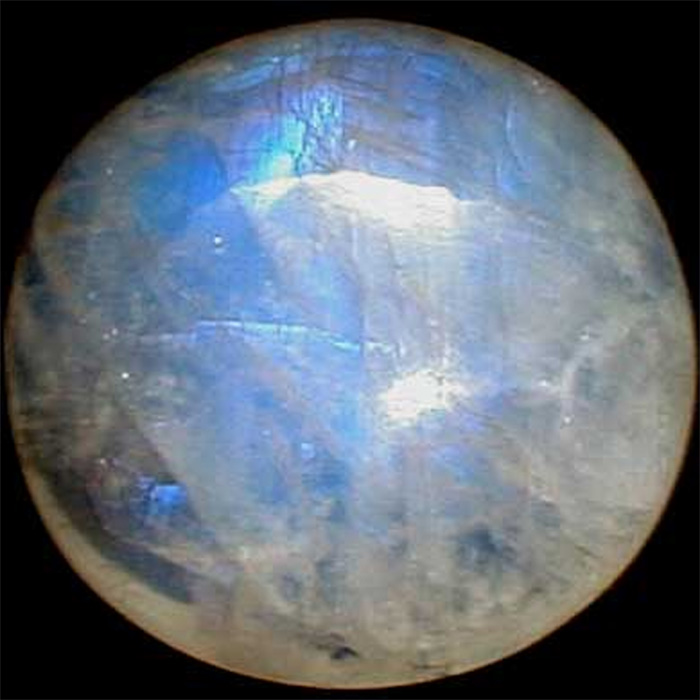Scientific Name: Anorthoclase, orthoclase, sanidine, albite, and oligoclase
Group: Silicates – tectosilicates
Chemical composition: (Na,K)alSi3O4
Colors: Colorless or white, peach, grey, and brown.
Hardness: 6 to 6.5
Formation: Triclinic, prismatic
Principal Sources: Scotland, Kenya, New Zealand, Australia, Sicily, Norway and Antarctica.
Special Notes: Moonstone is famous for its iridescence, also called “schiller,” that comes from minute interlayering of a different feldspar during crystallization. Moonstone is composed of two feldspar species, orthoclase and albite. The two species are intermingled. Then, as the newly formed mineral cools, the intergrowth of orthoclase and albite separates into stacked, alternating layers. When light falls between these thin, flat layers, it scatters in many directions producing the phenomenon called adularescence.

